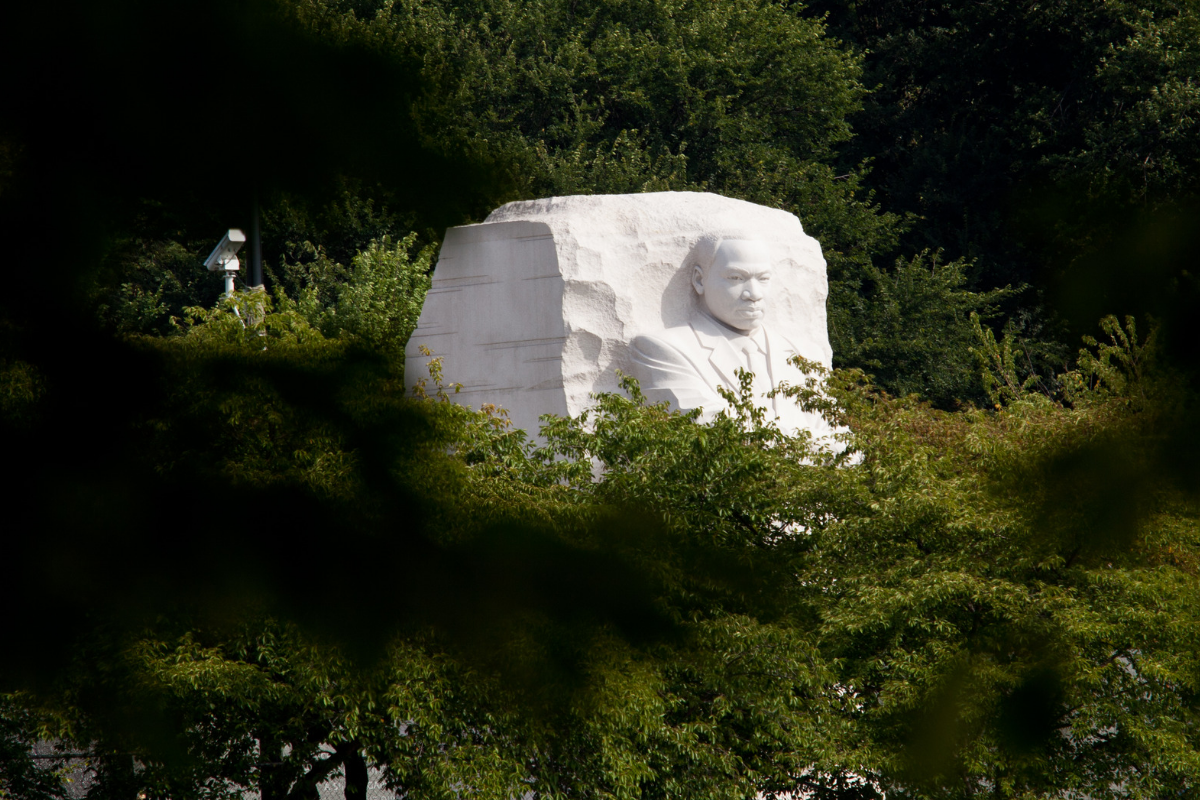Rev. Professor Peter Gomes (1942-2011) was an American Baptist minister who, from 1974 to the time of his death, served as Plummer Professor of Christian Morals and Pursey Minister in The Memorial Church, Harvard University. The following post is an excerpt from his sermon, The Ambiguity of Heroes, which was preached at Memorial Church on Martin Luther King, Jr. Day. The biblical text is Deuteronomy 8:2 (KJV) “And thou shalt remember all the ways which the Lord thy God led thee these forty years in the wilderness… .”
During his ministry, Gomes was one of the most influential, and erudite, religious leaders of his generation. He served on the Board of the W. E. B. Du Bois Institute for Afro-American Research at Harvard University, and his 1996 publication, The Good Book: Reading the Bible with Mind and Heart, immediately became a national best seller. Though a lengthy post, I invite you to engage this piece, which is re-produced in abridged form, as a way to reflect upon the life and the legacy of Martin Luther King, Jr.
With Dr. King’s birthday, which we celebrate today and tomorrow, as the Lord’s remembrancers we seek to remember, in the words of our text, “All the ways wherein the Lord hath led us in the wilderness.” As you remember, Dr. King was slain in Passion Week, 1968, and the first Sunday after his death was Palm Sunday. How rich were the associations with his death and the death of that other dreamer who too in times out of joint came to set the crooked straight. There could be no more vivid lesson in proximity than this one that reminded us of our ambiguous relationship to those who would save us: “Jerusalem, thou that killest the prophets and stonest them that are sent unto thee.” The association was too great, and in recent years we have moved our commemorations of this man from the tragedy-laden time of his death to the more hopeful season of his birth. With this we have managed, I fear, to translate this man, always difficult to live with, into a myth with which we are more comfortable and at ease. This too is the risk of the heroic.
Unlike many of the preachers and orators who speak his name these days, I did not know Martin Luther King. I never heard him speak nor did I ever see him. Some of you may well remember his visits to this pulpit in the ministry of my predecessor, and we have all heard him on the radio and the television, but I am not among those who can claim a relationship. I think he would have made me uncomfortable, for moral power, spiritual rigor, intellectual acuteness, and physical courage are all qualities that we admire in the abstract, but when we confront them face-to-face, especially if we doubt our own supply of them—well, it is difficult to be anything but awkward. Even within his lifetime, to many he appeared aloof and preoccupied, and many blacks resisted his natural ascendancy and single-mindedness. At the time of his death his vision called him to the basic needs of the garbage workers of Memphis, Tennessee, and to the immoral enormity of our war in Southeast Asia. In so many ways larger than us all, his ministry was concerned with the least of our brethren. The wave of guilt that swept the nation at his death was equal perhaps only to that of the deaths of Lincoln and Kennedy, and we all blamed ourselves for creating the climate of violence and indifference in which he could be slain for seeking to do good. In death he was able to claim the loyalty denied him in life, for it is far easier to honor the dead than to follow the living, and so we take the dead to our bosoms, for there they can no longer do any harm; and we can translate a living, breathing, both noble and fallible human being into a heroic impotence, satisfying our need to both admire and be protected from something larger than ourselves.
We cannot long afford such heroes as these, restricted to the moral archives, but these are all that we will have it we concern ourselves only with their personalities and their heroics insofar as they differ from our own. The purpose of biography, the task of the Lord’s remembrancers, is not to create a cult, a personality that fed upon public guilt and culpability, but rather it was to see revealed in the life commemorated the provident plan of God. The art of Christian biography is to see in the human the hint of the divine, and to see the divine in terms of flesh and blood that we would understand. If we fail in this delicate translation, we will be left with either just one more matinee idol or one more victim.
We are led to remember Martin Luther King, Jr., not because the liberal press says we should, or self-serving organizations and individuals hold us moral hostage to do so. We hold him in remembrance because he was in our time a part of that great company of witnesses from before our time who God has raised up to raise us up from our bondage to the things that are, to the liberty of things that can and ought to be. If we look for human perfection in him we will not find it, for he was man born of woman and shared in the sins and weaknesses of our human flesh. If we look for him to be the burden-bearer of our times, our race, or our nation, we will find that he is unable to bear that burden, for he was in the struggle fully as much as we. If we look for him to serve as our moral substitute and to “cash in” on his virtue, we will find the supply insufficient, for in that each must bear his own price; but if we look to see in him what God is trying to do and to say, if we look beyond the cult and the deeds, if in fact we look where he was looking, we may begin to see just what it was that sustained him that is freely available to sustain us as well, pilgrims and saints, people always in process, always moving.
We have learned much in the perilous years since this last dreamer was taken from us, and yet his dream, the dream of the ages, remains deferred to haunt us in its incompleteness. How could we mortals be expected to handle it? He and we should have known that it was too much for us, and yet the grace of his life and ours is that God continues to inject himself into this world where he is both needed and not wanted. Such is his love toward us that he sends us himself and gives us dreams to disturb our slumber and dreamers to disturb our waking. God grant that in our pilgrimage it may be ever so.











thanks..will share it with others….Alice gibson
Thanks for the message.
I know that God loves each flawed human being equally. We are all teammates on the same team. Love ALL your teammates .
Thank you, Dr. Bullock.
We are human beings and all have struggles. But our human nature bins us together. We need each other in our times of weakness. We should not be threatened by people like Dr. King who challenge us to realize that all human beings are loved equally by our Creator. I have been blessed to teach students and work with people who serve me in my times of need. They have also allowed me to serve them when they are in need of support.
Life can be a sport where we are all teammates. Let’s enjoy our teammates.
Thank you for sharing your thoughts and insight, Dick.
Jeff
Thanks for sharing, Jeff. What a great post. Did you get a chance to hear Rev Gomes preach?
Thanks, Gloria.
No…I didn’t hear him in person. However, Paul, the person who handles the technology for this site, gathered a list of recorded sermons that are available at the link in the “Summary” box, above.
What a beautifully composed piece. Thank you for reminding us that the task is great indeed and that while we are not required to complete it, we are expected, morally, to begin/continue it.
Alan,
Thanks for sharing your thoughts. Have a safe trip!
Jeff
Rev. Dr. King, for some time, has been a hero of mine, both for what he said, with unparalled oratory ability, and for what he stood up for. He was clearly led by God because his mission was, in several ways, contrary to the norms of human reasoning.
Rev. Gomes presented a perspective of Dr. King that is fresh and genuine.
Thanks, Dr. Bullock for sharing this excerpt from Rev. Gomes’ sermon.
Thanks, Kevin! And thank you for engaging the blog.
Jeff